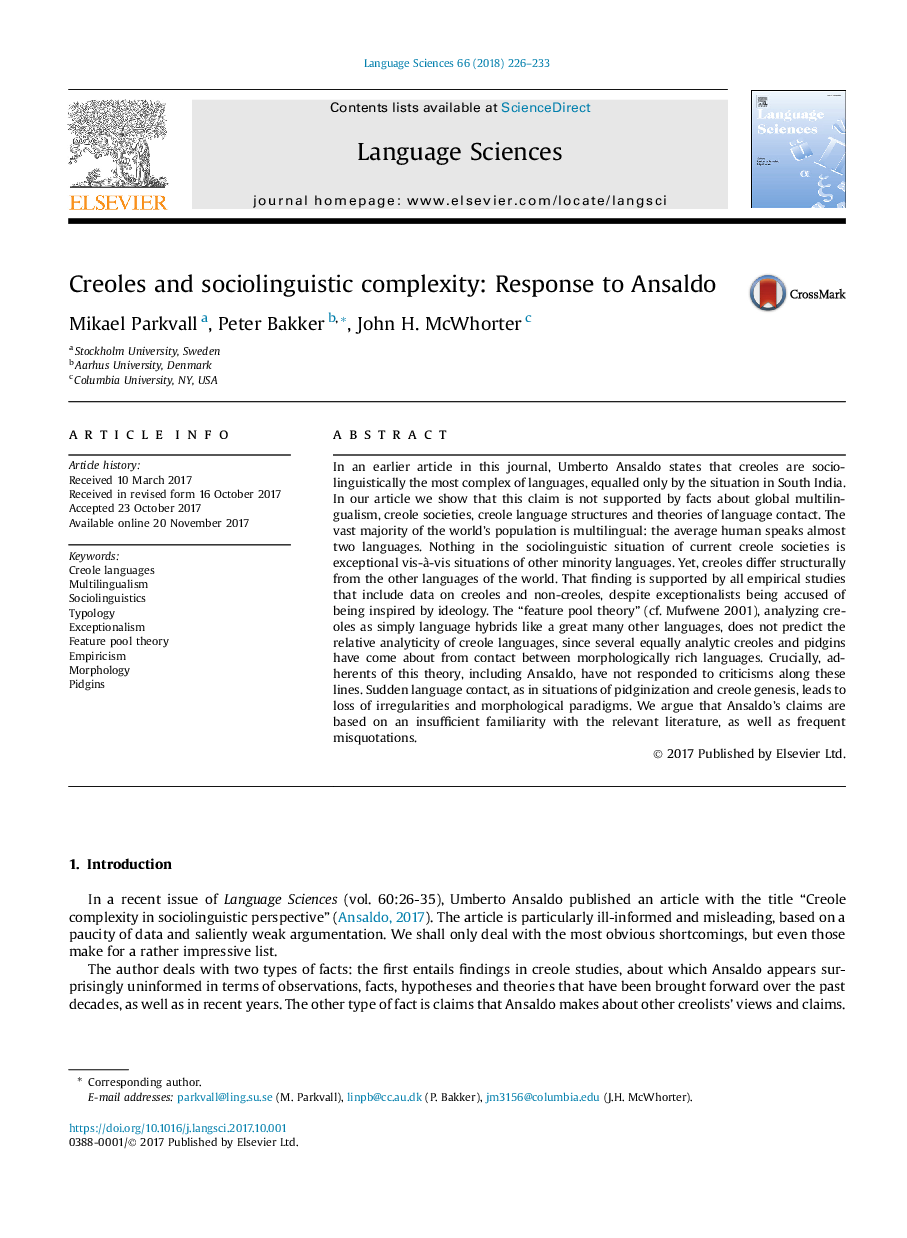| Article ID | Journal | Published Year | Pages | File Type |
|---|---|---|---|---|
| 7533852 | Language Sciences | 2018 | 8 Pages |
Abstract
In an earlier article in this journal, Umberto Ansaldo states that creoles are sociolinguistically the most complex of languages, equalled only by the situation in South India. In our article we show that this claim is not supported by facts about global multilingualism, creole societies, creole language structures and theories of language contact. The vast majority of the world's population is multilingual: the average human speaks almost two languages. Nothing in the sociolinguistic situation of current creole societies is exceptional vis-Ã -vis situations of other minority languages. Yet, creoles differ structurally from the other languages of the world. That finding is supported by all empirical studies that include data on creoles and non-creoles, despite exceptionalists being accused of being inspired by ideology. The “feature pool theory” (cf. Mufwene 2001), analyzing creoles as simply language hybrids like a great many other languages, does not predict the relative analyticity of creole languages, since several equally analytic creoles and pidgins have come about from contact between morphologically rich languages. Crucially, adherents of this theory, including Ansaldo, have not responded to criticisms along these lines. Sudden language contact, as in situations of pidginization and creole genesis, leads to loss of irregularities and morphological paradigms. We argue that Ansaldo's claims are based on an insufficient familiarity with the relevant literature, as well as frequent misquotations.
Related Topics
Social Sciences and Humanities
Arts and Humanities
Language and Linguistics
Authors
Mikael Parkvall, Peter Bakker, John H. McWhorter,
